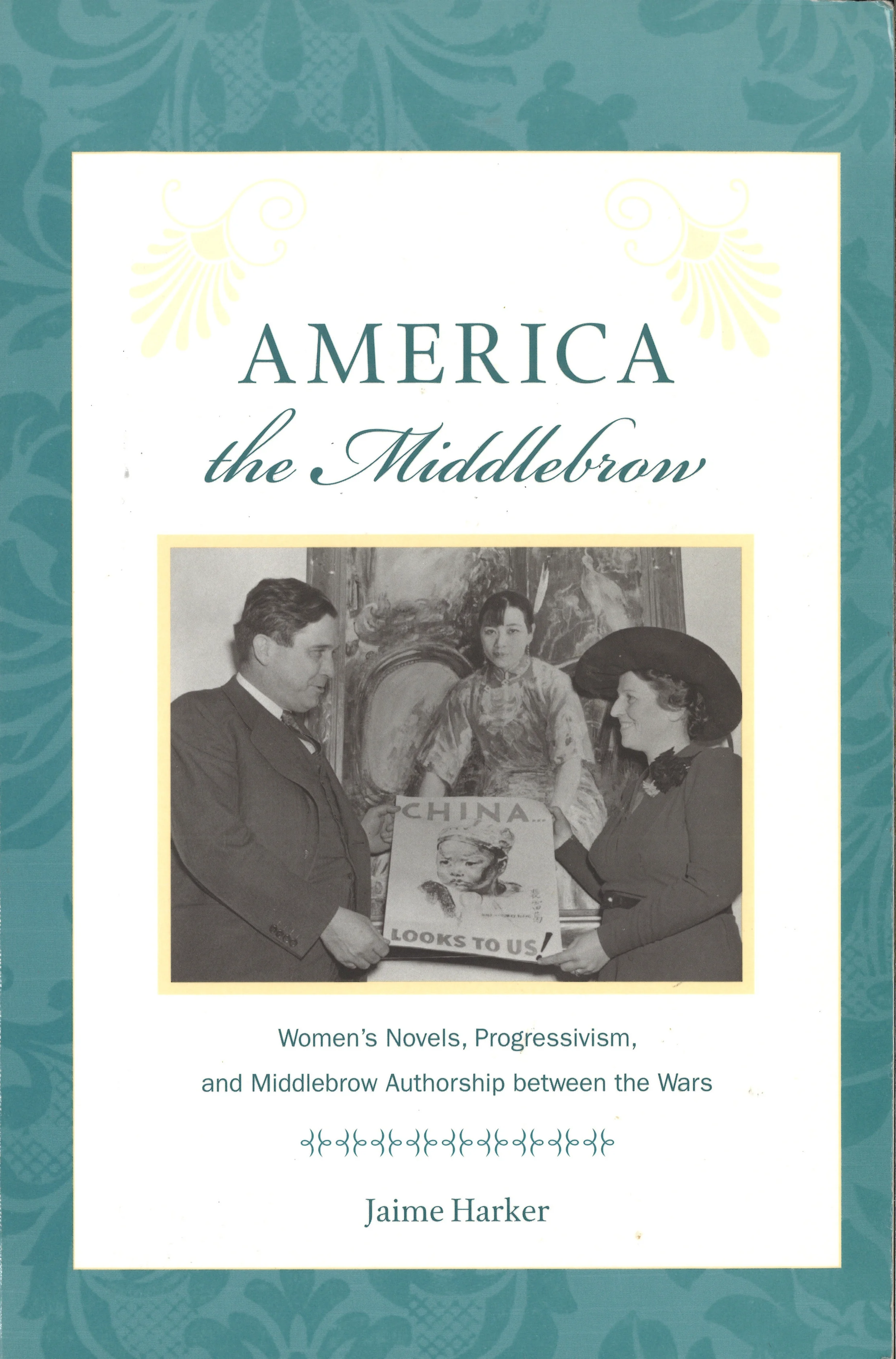Jaime Harker has been writing and editing academically for over a decade. See more about her publications below.
Middlebrow Queer: Christopher Isherwood in America
Jaime Harker shows that Christopher Isherwood refashioned himself as an American writer following his emigration from England by immersing himself in the gay reading, writing, and publishing communities in Cold War America. Weaving together biography, history, and literary criticism, Middlebrow Queer traces the continuous evolution of Isherwood’s simultaneously queer and American postwar authorial identity.
“
Jaime Harker’s approach to Isherwood’s American work—his Cold War novels, as she calls them—is a welcome fresh perspective on a neglected topic. In situating Isherwood’s ‘50s and ‘60s writing in the context of the rise of the paperback book, its distribution system, and readership, Harker recuperates a period of active gay and lesbian publishing. The history she uncovers of queer publishing in the Cold War years complicates the common history of homophobia and persecution associated with the era.“
— James J. Berg,
editor of Isherwood on Writing
University of Minnesota Press / Purchase Here
1960s Gay Pulp Fiction: The Misplaced Heritage
As a result of a series of court cases, by the mid-1960s the U.S. post office could no longer interdict books that contained homosexuality. Gay writers were eager to take advantage of this new freedom, but the only houses poised to capitalize on the outpouring of manuscripts were “adult” paperback publishers who marketed their products with salacious covers. Gay critics, unlike their lesbian counterparts, have for the most part declined to take these works seriously, even though they cover an enormous range of genres, with far more short story collections than is generally realized. Twelve scholars have now banded together to begin a recovery of this largely forgotten explosion of gay writing that occurred in the 1960s.
“
Gunn and Harker start with a thoughtful, detailed introduction that makes a case for the literary value of 'trashy' paperbacks by authors who have never received the critical attention they deserve. . . . The contributors show that these books revealed gay identity, society, and selfhood at a time when coming out was not an option. All further discussion of gay paperback fiction will be indebted to this groundbreaking book. Includes detailed end notes and an appendix on authors of the period. Highly recommended."
—Choice
University of Massachusetts Press / Purchase Here
America the Middlebrow:
Women’s Novels, Progressivism, and Middlebrow Authorship between the Wars
Between the two world wars, American publishing entered a "golden age" characterized by an explosion of new publishers, authors, audiences, distribution strategies, and marketing techniques. The period was distinguished by a diverse literary culture, ranging from modern cultural rebels to working-class laborers, political radicals, and progressive housewives. In America the Middlebrow, Jaime Harker focuses on one neglected mode of authorship in the interwar period—women's middlebrow authorship and its intersection with progressive politics.
“
Part cultural/intellectual history and part literary history and criticism, this book is interesting and useful. . . . The writing is clear and accessible, and the book will be of use not only to literary scholars, but also to cultural historians of the early twentieth century."
—Trysh Travis, University of Florida
University of Massachusetts Press / Purchase Here
The Oprah Affect: Critical Essays on Oprah’s Book Club
The Oprah Affect explores the cultural impact of Oprah’s Book Club, particularly in light of debates about the definition and purpose of literature in American culture. Powered by women writers and readers, novels in this tradition attract crowds, sell well, and make unabashed appeals to emotion. The essays consider the interlocking issues of affect, affinity, accessibility, and activism in the context of this tradition. Juxtaposing book history; reading practices; literary analysis; feminist criticism; and communication, religious, political, and cultural studies; the contributors map a range of possibilities for further research on Oprah’s Book Club. A complete chronological list of Book Club picks is included.
“
This collection is important not only for those interested in Oprah’s Book Club, but also for all of us who are interested in contemporary reading practices and, in particular, the sociology of literature. The theoretical foundations found in the various essays are wide-ranging, and the research methods used and discussed illustrate the exciting potential of reading scholarship. This is a valuable collection that will appeal to students and scholars across the academy.”
— DeNel Rehberg Sedo,
Mount Saint Vincent University
State University of New York Press / Purchase Here
Faulkner and Print Culture
William Faulkner's first ventures into print culture began far from the world of highbrow New York publishing houses such as Boni & Liveright or Random House and little magazines such as the Double-Dealer. With that diverse publishing history in mind, this collection explores Faulkner's multifaceted engagements, as writer and reader, with the United States and international print cultures of his era, along with how these cultures have mediated his relationship with various twentieth- and twenty-first-century audiences.
University Press of Mississippi / Purchase Here
This Book is an Action: Feminist Print Culture and Activist Aesthetics
The Women's Liberation Movement held a foundational belief in the written word's power to incite social change. In this new collection, Jaime Harker and Cecilia Konchar Farr curate essays that reveal how second-wave feminists embraced this potential with a vengeance.
“
These essays bring alive a vibrant, contentious, controversial period in the history of the women's movement, providing useful background to the publishing industry of the period, fresh insights into important texts, useful lists of works cited, and a variety of theoretical perspectives. . . . This book is a nuanced, provocative reminder of the women of the second wave."
-H-Net Reviews
University of Illinois Press / Purchase Here





